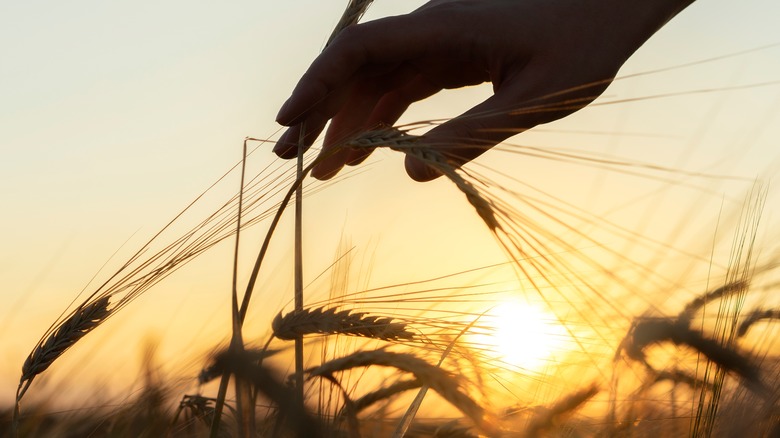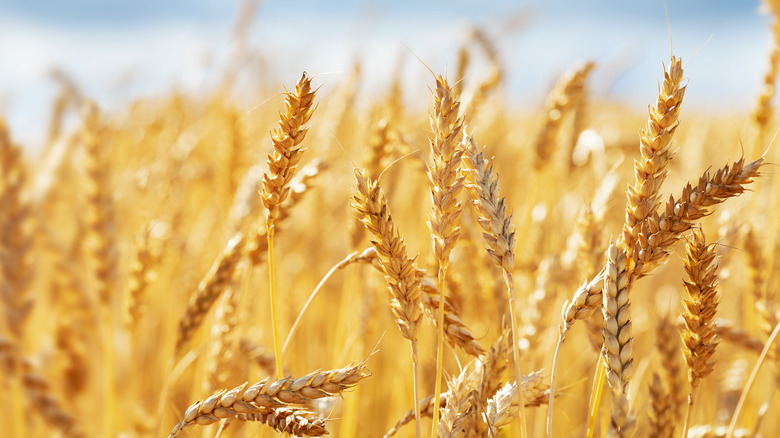The Al Barakeh Wheat Project Is Reviving Jordanian Baking Traditions
The nation of Jordan lies in the heart of the Fertile Crescent, also known as the cradle of civilization. According to National Geographic, this region, which lies in the flood plains of the Tigris and Euphrates rivers, is believed to be the origin point of the agricultural revolution and served as home to the ancient Sumerian civilization. From this bountiful land came some of humankind's most important inventions, including writing, metallurgy, and math (via History). But in our humble opinion, the greatest innovation to emerge from this land was that most glorious of all foodstuffs: bread.
In 2018, Reuters reported that a team of researchers had discovered the charred remains of a piece of flatbread estimated to be 14,500 years old at a site in eastern Jordan. The bread in question was made by the Natufian people, a mesolithic culture dating back to 9,000 B.C. whose people inhabited caves and small villages in the Levant (via Britannica). Per Reuters, the charred remains discovered in Jordan are the oldest known evidence of breadmaking. Before its discovery, the oldest trace of bread had been found at a 9,100 year old site in Turkey. Understanding this about Jordan makes it all the more heartbreaking to learn that globalization has threatened the region's traditional breadmaking, but a bold initiative called the Al Barakeh Wheat Project has stepped in to keep this history alive (via Atlas Obscura).
Jordan's native wheat has been overtaken by imports
The climate of Jordan is ideal for growing wheat, and up until the 1960s, much of the land was used to grow a native variety of durum wheat, according to Atlas Obscura. However, in the latter half of the 20th century, the local wheat was almost entirely replaced by imports of cheaper white flour from Europe. While many European nations subsidize their wheat industry, Jordan could not do the same according to the conditions of loans to the country from the World Bank and International Monetary Fund. Today, Green Network reports that Jordan imports more than 97% of its cereals, as many of the nation's farmers have abandoned wheat in favor of growing fruits or vegetables.
Seeking to revive Jordan's native durum wheat and reconnect the nation with its legacy of bread making, Lama Khatieb and Rabee Zureikat founded the Al Barakeh Wheat Project in 2019. According to Al Jazeera, the project's name translates as "blessing," and in their first year of existence, despite the fallout of the COVID-19 pandemic, they grew one and a half tons of durum wheat. Bolstered by this success, Khatieb and Zureikat launched a collective farming initiative, teaching participants to become self-sufficient by growing and harvesting their own grain.

